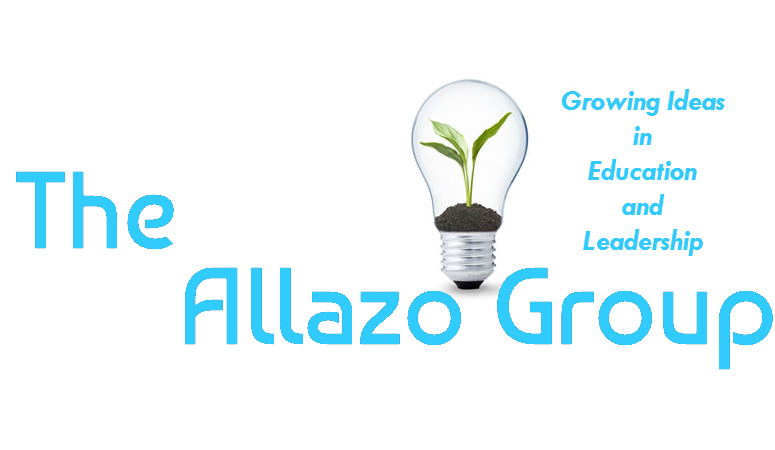
We recently had the opportunity to speak to a remarkable group of freshman students at a high school in Arizona. What made them remarkable were not their academic accolades. They were not honors students, nor were they attending a magnet or prep school. In fact, academically as a group, they seemed quite “normal”.
We talked about their futures, their hopes, their dreams. Then we talked about simple steps they could take in their youth to make those dreams a reality. We discussed a few important principles that would help them do just that. The importance of finding mentors and taking time to learn from them was a topic well received. We also talked about knowing how to ask effective questions and how doing so will enhance and create learning opportunities. We also talked about the need for identifying where they wanted to be as an individual at the end of their freshman year, at the end of high school, and even at the end of their lives. I then had them write down specific things they could do daily with that vision in mind . Finally, we talked about how choices really do matter. The seemingly inconsequential decisions they make in their youth will be an investment towards their success in the future and their satisfaction with today.
That is when I first learned just how remarkable were the group of youth sitting in front of me. I expected there to be push back or at least some disinterest. After all, aren't freshmen too young to comprehend some of these principles that many adults are just now figuring out? But I became a renewed believer in the profound potential of America’s youth. Not only did these freshmen pick up on what I was teaching, they ran with it. They were engaged. They lent thought provoking insights. And though many of them did not have an exact destination in mind for their life’s journey, they already had an idea of a direction they wanted to go and yearned for a vehicle to take them there. Were they the definition of maturity? No, not at all. But they wanted to learn and they caught the vision.
Is it not the responsibility of all those who work with youth to help each of them unlock the potential for greatness? Is that not what you sign up for when you choose to work with the next generation? I believe it is. I believe that’s a passion that most working in education have. And I believe that “greatness” can be defined in many ways. For example, I believe that leaders that lead the masses are admirable. I believe equally admirable is the leader who leads their own life with dignity and integrity as they strive to serve their community while being a good example in the process. Maybe a few kids in that freshmen class will go on to lead major corporations, but it is likely that more will go on to fill the everyday jobs that make up the backbone of our communities. It is paramount that these kids, and other kids just like them around the country, learn to become good leaders in whatever capacity they find themselves in. What struck me most about these freshman students was not that they knew exactly what they wanted to do with an exact plan on how they were going to get there, but rather that they expressed the desire to reach their full potential. It was evident that with a little direction in the way of principles some think too advanced for their years, the glimmer of hope shone brighter in their eyes. The thought that they could not just be good, but great today and in the future became an ever more present reality.
We talked about their futures, their hopes, their dreams. Then we talked about simple steps they could take in their youth to make those dreams a reality. We discussed a few important principles that would help them do just that. The importance of finding mentors and taking time to learn from them was a topic well received. We also talked about knowing how to ask effective questions and how doing so will enhance and create learning opportunities. We also talked about the need for identifying where they wanted to be as an individual at the end of their freshman year, at the end of high school, and even at the end of their lives. I then had them write down specific things they could do daily with that vision in mind . Finally, we talked about how choices really do matter. The seemingly inconsequential decisions they make in their youth will be an investment towards their success in the future and their satisfaction with today.
That is when I first learned just how remarkable were the group of youth sitting in front of me. I expected there to be push back or at least some disinterest. After all, aren't freshmen too young to comprehend some of these principles that many adults are just now figuring out? But I became a renewed believer in the profound potential of America’s youth. Not only did these freshmen pick up on what I was teaching, they ran with it. They were engaged. They lent thought provoking insights. And though many of them did not have an exact destination in mind for their life’s journey, they already had an idea of a direction they wanted to go and yearned for a vehicle to take them there. Were they the definition of maturity? No, not at all. But they wanted to learn and they caught the vision.
Is it not the responsibility of all those who work with youth to help each of them unlock the potential for greatness? Is that not what you sign up for when you choose to work with the next generation? I believe it is. I believe that’s a passion that most working in education have. And I believe that “greatness” can be defined in many ways. For example, I believe that leaders that lead the masses are admirable. I believe equally admirable is the leader who leads their own life with dignity and integrity as they strive to serve their community while being a good example in the process. Maybe a few kids in that freshmen class will go on to lead major corporations, but it is likely that more will go on to fill the everyday jobs that make up the backbone of our communities. It is paramount that these kids, and other kids just like them around the country, learn to become good leaders in whatever capacity they find themselves in. What struck me most about these freshman students was not that they knew exactly what they wanted to do with an exact plan on how they were going to get there, but rather that they expressed the desire to reach their full potential. It was evident that with a little direction in the way of principles some think too advanced for their years, the glimmer of hope shone brighter in their eyes. The thought that they could not just be good, but great today and in the future became an ever more present reality.
 RSS Feed
RSS Feed